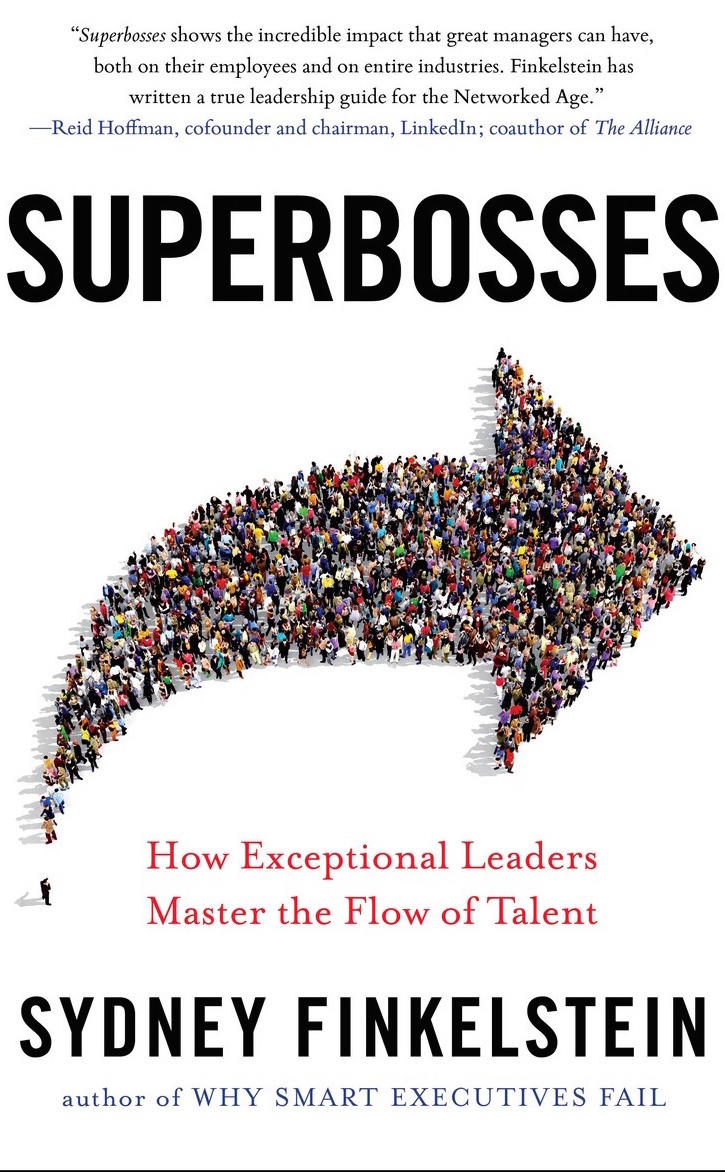“Superbosses don’t sit on the sidelines and they don’t let you do that either”

The three types of superbosses
In Superbosses: How Exceptional Leaders Master the Flow of Talent, Dartmouth College professor and business guru Sydney Finkelstein prises open some of the most successful minds in more than a dozen fields to find their elusive elements of inspiration.
At first, his choice of subject may seem random, almost arbitrary – it’s hard to imagine what jazz musician Miles Davis has in common with Star Wars director George Lucas, or fashion designer Ralph Lauren with Saturday Night Live creator Lorne Michael. Yet for Finkelstein, these are the visionaries that set the standard for a new kind of relationship between employer and employee – and a new breed of boss capable of inspiring a whole generation of employees.
Finkelstein breaks down these so-called ‘superbosses’ into three general categories. First are the ‘glorious bastards’, those bosses for whom winning is the only metric for success. It is their methodology, though, rather than their drive, that sets these taskmasters above your average hard-arse, building an empire one gifted employee at a time. Next come the ‘nurturers’, a more familiar face of the fabled mentor capable of bringing out the best in their employees. Lastly, the ‘iconoclast’, those creative geniuses consumed by a single-minded passion for their work that inspires those in their wake.
For Finkelstein, the eponymous superbosses he extols in his book possess a leadership style that surpasses mere encouragement.
“Superbosses are geniuses at helping other people accomplish more than they ever thought possible,” he explained in an interview. “This superboss approach is not ‘team-building’ or ‘mentoring’, but something much deeper that transforms protégés from talented apprentices to superstars.”
While this kind of language seems to verge almost on the mystical, the methodology behind Finkelstein’s book is decidedly more grounded. In Superbosses, Finkelstein delves into industries ranging from the creative to the financial, following branching trees of talent back to their initial root. “What I did is look at those leaders who have come to dominate their industries by virtue of the amazing talent they helped produce,” he said. “This approach produces some big insight: in each industry there are one or two people who have had an outsized influence on the development of superstar talent.”

One step closer
As tempting as it can be to ascribe this level of leadership to innate talent, the whole premise of Finkelstein’s latest book revolves around a direct challenge to the idea that great leaders are born, not made. In Superbosses, Finkelsein lays out the tips and tricks behind that most elusive hallmark of leadership: inspiration.
“The playbook – with counter-intuitive ideas on how to identify, motivate, inspire, and leverage talent – is completely teachable,” he explained. “The answer to arguably the most important challenge all organisations have is there for the taking.”
Finkelstein explains that for a superboss to get the best from their employers, they first have to be prepared to get their hands dirty.
“Superbosses can be fierce, gentle, belligerent or self-deprecating,” he wrote. “But whatever their style, they do a much better job inspiring and teaching, because they get in the trenches with protégés, leading by example and giving them the personalised attention they require. Bossy bosses may achieve great personal success for a time, but eventually they lose it all as their house of cards collapses. Superbosses enjoy lasting success and they also spawn a generation of protégés who become movers and shakers in their own right.”
It’s this hands-on technique, Finkelstein suggested, that separates truly inspiring bosses from the archetypal Donald Trump figure whose bloated ego and icy remoteness only serves to push promising employees away rather than building them up.
This is not to say that talented employees are expected to hang around the office forever – far from it, in fact. A high turnover in employees can be a concrete sign of their rapid development under a superboss’s tutelage.
“If some of your best people leave, your reputation for producing talent grows, and you become a talent magnet,” he said. Nobody gets stale, he wrote, and “you become the employer of choice for new blood” who want to accelerate their careers.
Perhaps most heartening about Finkelstein’s thesis is its humanity. By stressing a deep level of personal engagement between employer and employee, Finkelstein pushes back against the common image of the boss as an adversary from up high whose profits depend on squeezing workers for all they’re worth.
“Superbosses help make work meaningful again”
“Superbosses don’t sit on the sidelines and they don’t let you do that either,” Finkelstein said. “They push, challenge, engage, and give you a chance to have a big impact on what is happening at your organisation. Especially for millennials, but for everyone, superbosses help make work meaningful again.”
Also challenged is the outdated belief in life-long loyalty to a single company. By building up talented employees, a superboss not only creates more value in the short-term but establishes connections that can prove critical once the employee moves on to a new job in a similar agency. These relationships, Finkelstein argues, are what truly define a superboss.
“Superbosses help other people get better,” he said. “If you want to know what loyalty is, this is a good place to look. When I interviewed superboss protégés, they didn’t stop talking about what their superboss meant to them. Now imagine all these people are in your network and you have access to great people, great ideas and great opportunities.”

